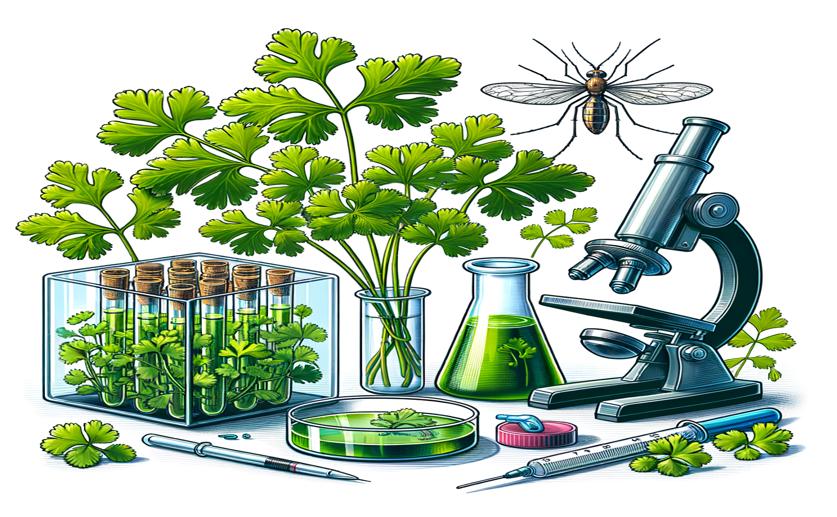
Testing the Antimalarial Effectiveness of Cilantro Leaf Extract in Living Models
Jenn Hoskins
13th July, 2024

Image Source: Natural Science News, 2024
Key Findings
- Researchers at Addis Ababa University studied the antimalarial effects of coriander (Coriandrum sativum) in mice
- The coriander extract was non-toxic and significantly reduced malaria parasite levels in all test models
- The highest reduction in parasite load was 82.74% in the suppressive test at the highest dose
References
Main Study
1) Antimalarial efficacy test of the aqueous crude leaf extract of Coriandrum sativum Linn.: an in vivo multiple model experimental study in mice infected with Plasmodium berghei.
Published 12th July, 2024
https://doi.org/10.1186/s12906-024-04577-0
Related Studies
2) Malaria.
3) Malaria: Biology and Disease.



 13th June, 2024 | Jim Crocker
13th June, 2024 | Jim Crocker